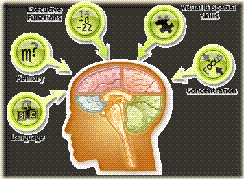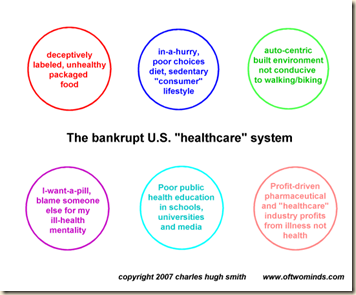Post tryptophane tremors
Why are there not enough
Primary Careologists?

This sounds very familiar. The problem with medical school begins in the first year. Most of the two preclinical years have little to do with practicing medicine. Those trained in some basic science in the last several years of college realize very quickly that medicine has little to do with science or curiosity about science and/or health. It is more like elementary school for doctors…just like you learned reading, writing and rythmatic to prepare you for middle school, and high school to learn trig, algebra and calculus. What you learn during those first two years is nomenclature, and linguisitics…much like any vocation which has specific terms. Lawyers learn how to speak ‘lawyerese’, computer scientists learn ‘geekology’. These first two years expand your vocabulary, which few other people can or will understand.
The second two years of medical school expose medical students to some clinical work, which they will perform only if the intern and resident are overwhelmed with their duties, don't want to be bothered, since they consider it 'scut work'. If the clinical material is scarce it will be monopolized by the intern/resident. Actually the medical student rotation may bear little resemblance to the actual clinical work that a mature physician will do in his practice. Ordinary medical stuff is usually lacking in a university or tertiary medical center where formal training takes place.
So what actually occurs is that each medical student must make a choice of what he will do with very little chance to experience a specialty or general practice prior to having to select a specialty or match for postgraduate training. In addition to this major shortcoming, the free standing postgraduate year of what used to be called internship is now called pgy 0, or 1, whatever the term is these days. This is also another reason why PCP, or primary care providers are so rare. (this used to be called general practice or family practice for you really young guys.) Many young doctors used to take an internship, then go out and practice general medicine for a few years to get a real taste of what they like or don’t like about each brand of medicine. Yes, Johnny it is possible to do this, and quite safely if apprenticed with an older physician. I did it in the U.S. Navy aboard a floating naval ship LPD-10 in the middle of a war.
Primary Care Can Be Fun

LPD-10 U.S.S. JUNEAU
The Well Deck (partially submerged) on LPD 10
+and+Royal+Australian+Navy+ship+HMAS+Sirius+(O-266)+perform+a+replenishment+at+sea.+.jpg)
U.S.S. JUNEAU (L) SUPPLY SHIP (R) underway refueling, and transfer of doctor as well. (not for the squeamish)..the cable goes up and down about 50 feet as the ships ride the waves.

I was able to do so because of my strong general medicine training in med school and INTERNSHIP. This is because the internship required and demanded competency in general medical,pediatric, surgical and OB/GYN.( I and my classmates delivered over 100 babies during our senior year of med school. Those who had OB in their third year also did the same.) After the navy experience I chose to do general medicine and even became medical director of an emergency department…. It was 6 years before I specialized, some by choice and others by necessity.
Early on I was not sure what I liked or disliked. The clinical part of medicine bears little if any relationship to the science of what you study in the first two years of medical school. You may love endocrinology, or cardiac physiology, but find the clinical aspects of gyn, proctology, or cardiac resuscitation, or surgery revolting. You may like ENT but the thought of treating nosebleeds at 2AM a turn off.

The bread and butter of medicine has little to do with what you see or do at University Tertiary Medical School.

And you are being trained by a guy with one more year of training than you have experienced. Not only that, but he or she will be ranking you, in many cases. Those ‘professors’ who run the department are off giving lectures, writing speeches, or patting some other professor from eithr your institution or another one, on the back.
Being on call every other night, or dealing with very sick patients has little resemblance in internship to practicing general medicine, pediatrics, or other specialties. The journey through med school and internship may be more a journey of avoidance rather than seeking fulfillment.
Sometimes doctors near or at the end of their formal training are uncomfortable entering the ‘real world’. Some chose to go on because of this and subspecialize, some even do multiple fellowships, in neurology, ophthalmology, oculoplastic surgery or other areas.
Some even decide to avoid ‘real medicine’ by becoming academicians. (which is another whole story on dysfunctional adult behavior)
When you reach the pinnacle of success in your own practice and look outward at your colleagues you will find clusters of physicians in a group who trained at one particular institution or another…the Harvard guys, the Yale guys, the UCLA guys…

all self selected into their own tier. My experience is that they are neither smarter or dumber that the rest. Only some patients think that is really important. I often times would have to ‘bail them out or show them some ‘ordinary thing’ that they never saw at the IVORY tower university. Perhaps they saw 100 cases of Sarcoid or Wegener’s granulomatosis, but never managed an Alzheimer patient, or chronic congestive heart failure,nor managed a new diabetic that was not in severe ketoacidosis
And finally our realm of medicine has been invaded by nurse practitioners, physician assistants, retail health clinics, and more.........Why go to school to study over 15 years to do a job that a nurse can be trained to do. No, the won't have the depth of knowledge or experience....but the insurers, and payors could care less. The only ones hassled for credentials are the MDs and specialists.....
Most young doctors don't realize that 90% of what they will do is in an outpatient setting, so who really needs a hospital unless your insurer requires it, and then you can find either a hospitalist or specialist to do all the hospital or paperwork...







+and+Royal+Australian+Navy+ship+HMAS+Sirius+(O-266)+perform+a+replenishment+at+sea.+.jpg)